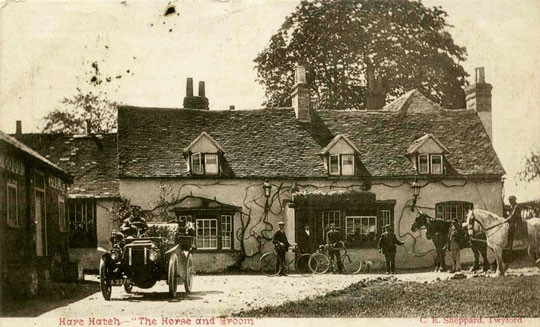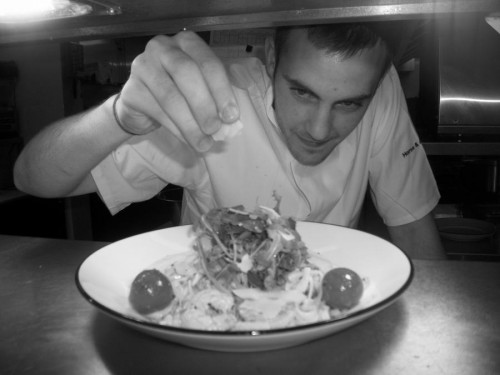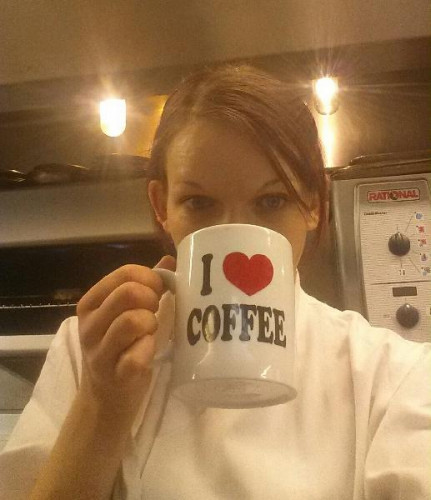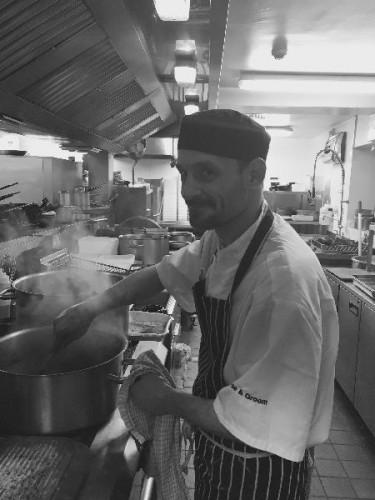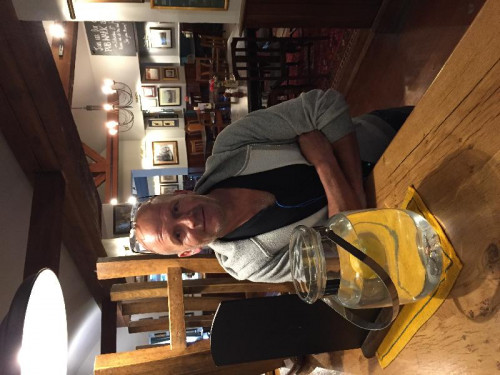The 'Hare-hatch' was one of the old gates into Windsor Forest, presumably where hares were often seen. This part of the forest was an area sacred to the Saxon people and called the 'Frith', although Maidenhead Thicket is the only remaining woodland portion remaining. The hamlet of Hare Hatch emerged on the edge of this forestland, apparently as summer pasture for local livestock, as indicated by the names of Deane Farm and the Deane fields.
Though farming always remained the main industry in Hare Hatch, the building of the great road to Bath, which ran through the hamlet, gave it a huge boost as a stopping off place for travellers to and from London and the West Country, and for nobility and their retinues travelling to and from Windsor Castle. In the early 1700's, Bath Road would have been a major motorway of its day.
In those days coaches had little illumination and could not travel at night, so travellers would have need of an inn to eat, drink and sleep and to rest their horses, and the Horse and Groom was constructed around this time to cater for the needs of travellers. The very name itself, of course, would have indicated to travellers that their horses could be fed and watered at the inn.
At that time, the whole process of travel was fraught with danger, with highwaymen running rife through the countryside, there being no effective police force. The Maidenhead Thicket was renowned as being particularly dangerous, and travellers seldom crossed the thicket after dusk for fear for their personal safety and possessions, which was good news for the landlord of the Horse and Groom.
Mail coaches were also particularly vulnerable as they were used to transport money: so frequent were robberies of mail coaches, that at one point customers were advised to cut their banknotes in two, and send each half at different times with different coaches.
One of the ruses employed by highwaymen would be to pretend to be travellers themselves and frequent the inns, where they would pick up snippets of information about which coach was travelling where, and whether its occupants were likely to provide rich pickings on the following day. The Horse and Groom would undoubtedly have been used in this manner.
On a more recent note, we have made contact with Hereward Harrison, whose family had the pub for generations, from 1924 to 1970. He has furnished us with many of the old photographs in the pub for which we are most grateful. The family still have in their possession Olympic medals from 1908, won by Cecil Mckaig, who was the landlord at the Horse and Groom from 1924 to 1939.
The Horse and Groom has been serving food and ale for some 300 years now with an extraordinarily rich history, and with the recent renovations, it's set fair for many more years to come.


